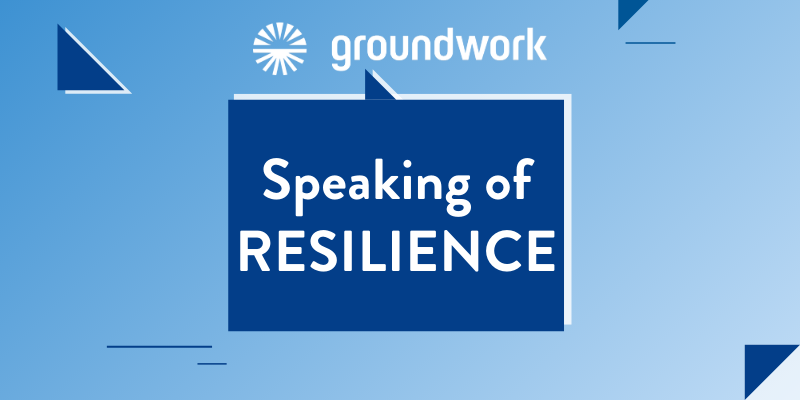Michigan’s Upper Peninsula residents cherish the independence that comes with the remoteness of their rural locale, but many residents struggle with high costs of heating, electricity and transportation. It’s that very remoteness that increases the cost of delivery for the coal, oil, propane and electrical wires that power their existence.
Imagine the independence that Yoopers would enjoy in a future where the U.P. generated its own power through solar, wind, and geothermal power, and where they were connected through a smart electrical grid to maximize efficiency. It’s not implausible – and in early November the U.P. has an opportunity to engage with the state’s top energy leaders to plan for that future.
Groundwork is leading an initiative to bring U.P. residents, government leaders, businesses, and other organizations to a virtual U.P. Clean Energy Conference series that happens 2–4:30 pm, Monday, November 9, to begin envisioning that future. The conference is designed to influence and support the recommendations of Governor Whitmer’s U.P. Energy Task Force, which will complete its work in March 2021.
“The U.P. has an incredible opportunity to get ahead of the renewable energy curve as a result of the U.P. Energy Task Force,” says Richelle Winkler, a conference organizer and rural sociologist from Michigan Technological University. “We want to make sure that communities across the U.P. have a say in our energy development futures and are prepared to take advantage of opportunities in renewable energy development that benefit local people, create jobs, and boost economic growth. We can achieve energy independence from renewable energy, while still making sure we preserve our rural character.”
Groundwork has convened a planning team of more than a dozen U.P. renewable energy advocates and analysts to design the conference series. Promotional support is provided by many more U.P. organizations, including Michigan Tech, Northern Michigan University, Michigan Energy Options, Superior Watershed Partnership, the Sault Tribe of Chippewa Indians, Keweenaw Bay Indian Community, Bay Mills Indian Community, Michigan State University Extension, and all three U.P. regional planning agencies.
“This conference is well timed to get ideas in front of our community, and to get input to the Task Force while it’s still meeting,” says Jenn Hill, Marquette City Commissioner and U.P. Energy Task Force member who is also serving on the conference planning team. “Renewable energy is coming, and the U.P. has a chance to be leading Michigan’s rural communities.”
The kickoff meeting will feature a presentation from Liesl Clark, U.P. Energy Task Force Chair and Director of Energy, Great Lakes and Environment (EGLE). She will share updates from the task force and information about its mission. Bay Mills Indian Community Chair Bryan Newland will present about the unique opportunities that tribal nations have to engage in renewable energy. Douglas Jester, of 5 Lakes Energy, and also a U.P. Energy Task Force member, will review electricity demand across the U.P. and evaluate possibilities for meeting future needs with U.P.-based renewable energy.
Dr. Sarah Mills, of the University of Michigan Graham Sustainability Institute, will speak on a panel about how local governments can engage in siting renewable projects to best benefit their communities.
The conference planning team has also begun designing additional webinars to be held later this winter that will expand perspective and understanding about renewable energy.
“The conference planning team found there to be so many topics about renewable energy that we couldn’t fit them all in one afternoon session,” says Michael Larson, of Michigan Energy Options, and also a member of the U.P. Energy Task Force. “We’re pleased to be able to host several more sessions throughout the winter focused on energy issues and solutions in the U.P.”
Register for the conference at upcleanenergy.org, where you will also find a list of host organizations and program agenda.




